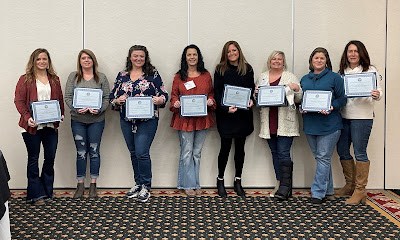Many roles
Municipal clerks are not often the focus of attention, but they are crucial for keeping municipal governments running. State law includes a narrowly drawn list of clerk responsibilities, including giving public notice of council meetings, maintaining minutes and maintaining records of ordinances and resolutions.
Beyond the standard items of preparing and distributing agendas, or maintaining the records of appointed commissions and committees, many clerks also serve in financial and administrative roles for their cities and towns. A combined municipal clerk and finance officer role, generally referred to as a clerk/treasurer, is common in small and midsize cities. In larger cities, a standalone municipal clerk position usually exists. And while the statutory duties of a clerk are limited in scope, the reality is that municipal clerks play a critical and varied role to support the mayor, city council, managers and administrators.
In the City of Clemson, Beverly Coleman serves as the city clerk and the business license officer. She said that the role of the clerk has evolved significantly in her career of more than 20 years with the city. Technology, she said, has made it easier for clerks to gain professional development training and boost governmental transparency.
“Clemson and other municipalities alike are using websites to provide all council meeting documents, budgets, bill paying and event calendars,” Coleman said. “Livestreaming for public meetings and social media for communication to the public are also being used more than ever. Most municipal clerks have multiple roles, and are the main source of information for their municipality.”
Town of Snelling Clerk Lisa Still echoed the point of the municipal clerk as a wide-ranging job.
“When I accepted the clerk position, I thought I would be the town’s documentarian. Take minutes, read minutes, file things, repeat,” she said. “Nearly 15 years later, I realize the role of a clerk really dips into a hundred different duties — especially in a small town like Snelling. In addition to being a note-taker, you’re an event-planning, business licensing, archiving, financial planning, mediating, multitasking municipal wonder. It is definitely not a boring desk job. And, quite honestly, I wouldn’t have it any other way.”
Municipal clerk resources
The Municipal Association of SC offers on-demand municipal clerks training sessions, a series of quick interactive tutorials that explain the duties and responsibilities of the job, and the portions of state law governing municipalities that all clerks should know.
Municipal clerks also have access to a wide range of professional development opportunities through the SC Municipal Finance Officers, Clerks and Treasurers Association, including training sessions and a listserve to ask questions and discuss best practices. MFOCTA is a cosponsor of the SC Municipal Clerks and Treasurers Institute, a three-year program that counts toward the International Institute of Municipal Clerks’ Certified Municipal Clerks designation.
A recent article in the Municipal Association’s Uptown publication, “A Day in the Life of a Municipal Clerk,” highlighted clerk duties as performed by Gray Court Clerk Treasurer Doris Hamilton, Yemassee Town Clerk Matt Garnes and West Columbia City Clerk Crystal Bouknight Parker.
Learn more about Professional Municipal Clerks Week and find the sample resolution that city and town councils can use in May to recognize their clerks’ work.

No comments:
Post a Comment